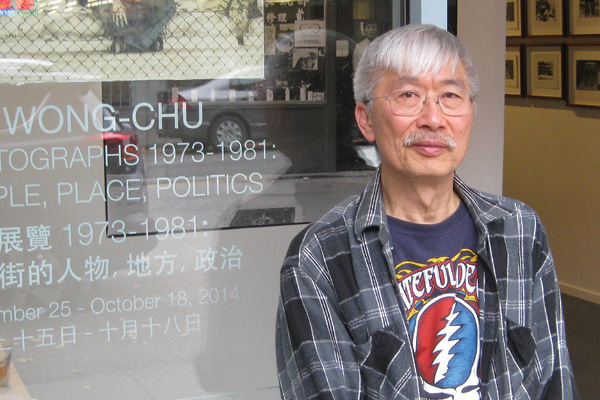By Terry Watada
2017 is the 75th anniversary of the Japanese North American internment. Much has been said about the experience in those years. The first utterances came out after 1970, more than 25 years after the fact. Shizue Takashima’s A Child in Prison Camp was published in 1971; Ken Adachi’s Enemy that Never Was in 1976; Obasan by Joy Kogawa 1981; and Toyo Takata’s Nikkei Legacy 1983. And film – mostly American and not until the late 1980s into the 1990s and 2000s (with some exceptions) – Come See the Paradise (1990); Snow Falling on Cedars (1999); Day of Independence (2003); Only the Brave (2006); and Under the Blood-Red Sun (2014) to name a few. There is Go for Broke (1951), a film that featured the men of the 442, except the star was Van Johnson.
In Canada, the films Images of the First 100 Years by the Powell Street Revue 1983 and Watari Dori by Jesse Nishihata 1973 explored the history and identity of Japanese Canadians. But there was little else.
So it was rather remarkable that in 1971, If Tomorrow Comes, a movie-made-for-television, appeared on a major television network. The story revolves around the secret marriage between a white American high school girl and a Japanese American boy just before Pearl Harbor. The film depicts the racist feelings within a small California coast town. The “Japs” mostly keep to themselves to practice their religion and customs, though there was some confusion to my mind since the protagonists celebrate Obon yet they say grace before dinner. In general, they are portrayed as a people caught between two cultures: they wear kimono during the festival, they eat Japanese food (mistakenly called Chinese food by the white folk) and the Nisei “swing” to big band music. The traditions are deemed too “Japanesy” but David Tayanaka, the high school boy, is an All Conference Basketball Guard, honor student and Eagle Scout. He is played by Frank Michael Liu. Totally miscast, he mispronounces Obon as Oban. Still, the point is made: he is “nothing but a Jap” to the townspeople.
Into this milieu wanders Eileen Phillips played by Patty Duke. After making some stereotypical blunders (she thinks he speaks “good English … I mean American”) she falls for young David, despite his ethnicity. The all-American girl-next-door has a dyed-in-the-wool racist father, played by the veteran actor James Whitmore (some called him a “poor man’s Spencer Tracy”). She also has a hate-filled brother (Harlan played by Michael McGreevey) who eventually beats David’s brother (notably played by Mako) to death; David in turn beats Harlan to death. After a trial, David is exonerated, but Aileen’s father’s heart cannot forgive. A Jap is a Jap and should die for killing his son.
The plot then revolves around the secret marriage of Eileen to David. They seek the advice and solace of a minister and the neighbour, Ann Baxter, but cannot tell each other’s parents. Everything comes to a head when Pearl Harbor is bombed. David’s father is arrested and taken to a detention center. Then comes Executive Order 9066, which condemns all Japanese Americans to internment and concentration camps.
In the meantime, the couple decide to run away to Bakersfield to live in peace. So Eileen fakes her death by drowning unbeknownst to David. When he finds out he goes to the beach and commits hara kiri (really?). The plot descends into Romeo and Juliet. The film ends with Eileen mourns her loss by washing David’s body (a “Japanese tradition”). It is disappointing to me that Eileen is not pregnant with David’s baby, lending some hope to the situation. But no.
Others in the cast include Pat Hingle as the understanding town sheriff and Anne Baxter as the neighbour who is an ally of the Tayanaka family. Unusual casting since James Whitmore many times played the tolerant one and Pat Hingle played the racist.
What inspired Patty Duke to take on the role is anyone’s guess. She won an Academy Award at the age of 16 for her role as Helen Keller in The Miracle Worker (1962). She found success in The Patty Duke Show (63-66) and the Valley of the Dolls (1967). Perhaps she was trying to venture into a career with more mature roles by the early 1970s.
And what possessed Aaron Spelling, veteran producer of such series as Charlie’s Angels, The Love Boat and Dynasty, to green light a project like If Tomorrow Comes.
In the end, If Tomorrow Comes featured good to bad acting, stilted dialogue and a plot that was cliché driven – the Romeo and Juliet motif was rather strained. That being said, the TV movie did shine a light on the racism against the Japanese in America and the paranoia that imprisoned thousands of US citizens in camps across the interior. Perhaps foretelling the America of today.
Editor’s note: Terry Watada begins his annual summer hiatus with this column. He will return in October.


